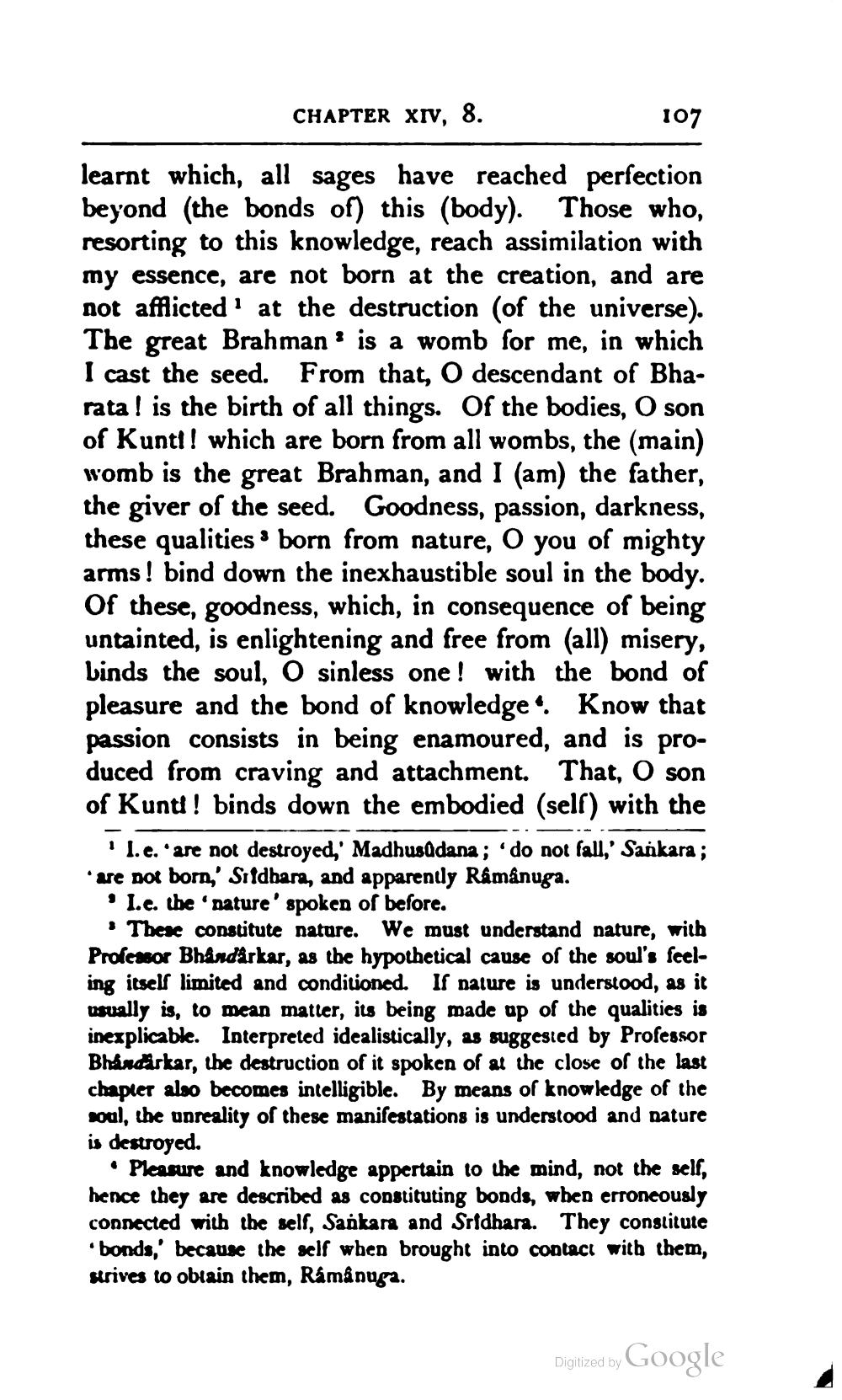________________
CHAPTER xrv, 8.
107
learnt which, all sages have reached perfection beyond (the bonds of) this (body). Those who, resorting to this knowledge, reach assimilation with my essence, are not born at the creation, and are not afflicted' at the destruction (of the universe). The great Brahman: is a womb for me, in which I cast the seed. From that, o descendant of Bharata I is the birth of all things. Of the bodies, O son of Kunti! which are born from all wombs, the (main) womb is the great Brahman, and I (am) the father, the giver of the seed. Goodness, passion, darkness, these qualities' born from nature, O you of mighty arms ! bind down the inexhaustible soul in the body. Of these, goodness, which, in consequence of being untainted, is enlightening and free from (all) misery, binds the soul, O sinless one! with the bond of pleasure and the bond of knowledge“. Know that passion consists in being enamoured, and is produced from craving and attachment. That, O son of Kunti! binds down the embodied (self) with the
' I.e. are not destroyed,' MadhusQdana ; do not fall,' Sankara ; are not born,' Sifdhana, and apparently Rámånuga. • I.e. tbe 'nature' spoken of before.
• These constitute nature. We must understand nature, with Professor Bhandarkar, as the hypothetical cause of the soul's feeling itself limited and conditioned. If nature is understood, as it usually is, to mean matler, its being made up of the qualities is inexplicable. Interpreted idealistically, as suggested by Professor Bhandarkar, the destruction of it spoken of at the close of the last chapter also becomes intelligible. By means of knowledge of the soul, the unreality of these manifestations is understood and nature is destroyed.
• Pleasure and knowledge appertain to the mind, not the sell, hence they are described as constituting bonds, when erroneously connected with the self, Sankara and Sridhara. They constitute bonds,' because the self when brought into contact with them, strives to obtain them, Rámånuga.
Digitized by Google




